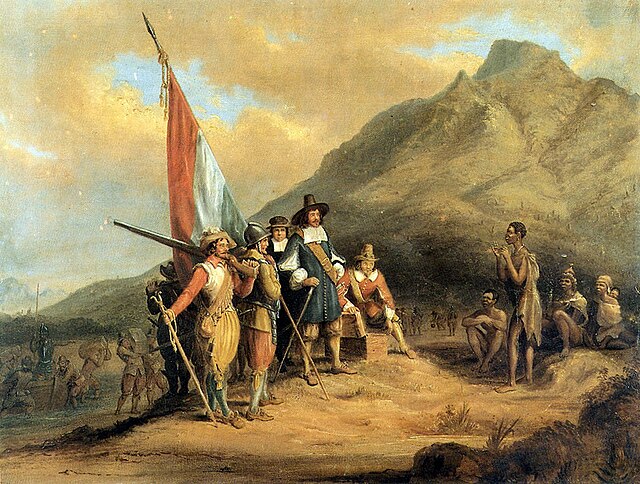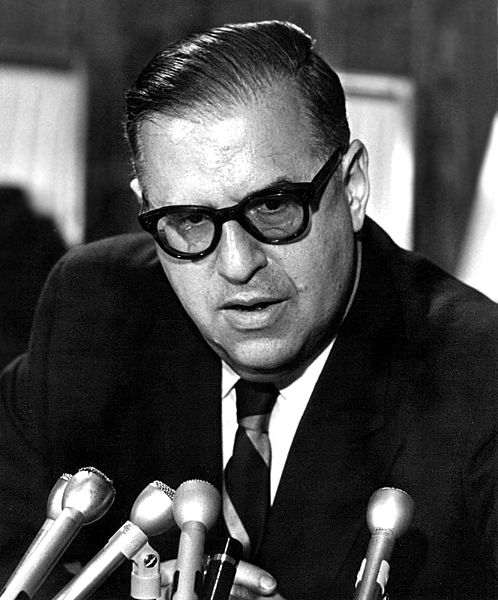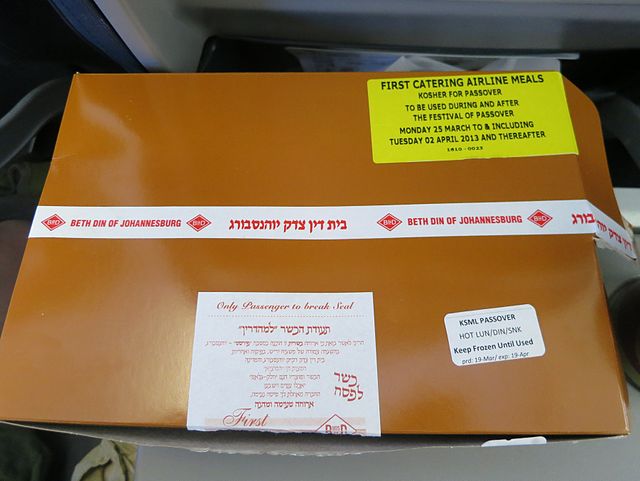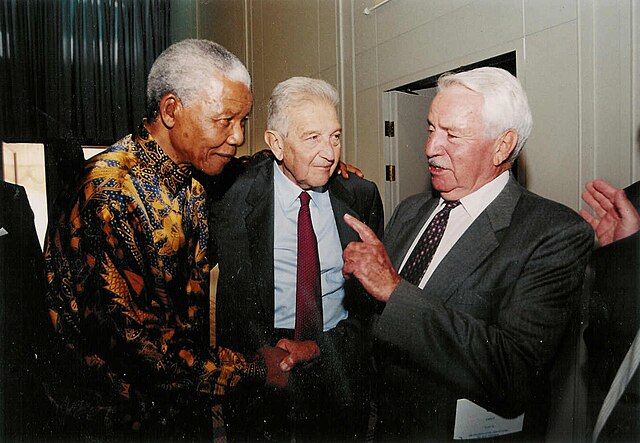History of the Jews in South Africa
South African Jews, whether by culture, ethnicity, or religion, form the twelfth largest Jewish community in the world, and the largest on the African continent. As of 2020, the Kaplan Centre at the University of Cape Town estimates 52,300 Jews in the country. The South African Jewish Board of Deputies estimates that the figure is closer to 75,000.
A painting by Charles Davidson Bell depicting Jan van Riebeeck's establishment of a colonial settlement of South Africa; a number of Jews came to the colony in the following decades.
Abba Eban, born in Cape Town, was Foreign Minister of Israel from 1966 to 1974.
Ivan Glasenberg, CEO of Glencore
Kosher meal approved by the Beth din of Johannesburg
Israel–South Africa relations
Israel–South Africa relations refer to the current and historic relationship between the Republic of South Africa and the State of Israel. During the 1950s and 1960s, Israel became an open critic of the apartheid regime in South Africa, hoping to establish good relations with black-majority countries in Africa. However, most African countries severed ties with Israel in 1973 while increasing their ties with Arab countries. This situation led Israel to deepen its diplomatic ties with South Africa throughout the 1970s and 1980s. Up to 1986, Israel had a vibrant economic relationship but was forced to sanction South Africa in 1987, mainly as a consequence of American pressure.
The South African delegation to the 1935 Maccabiah Games in Tel Aviv, Mandatory Palestine.
Former South African President Nelson Mandela with Israeli President Ezer Weizmann and Syd Cohen of the Israeli Air Force, 1999.
Israeli Deputy Foreign Minister Danny Ayalon meets with Jerry Matjila, South African Director General for Foreign Affairs, September 2009.
A pro-Israel solidarity rally outside the South African Jewish Museum in Cape Town, August 2014.








